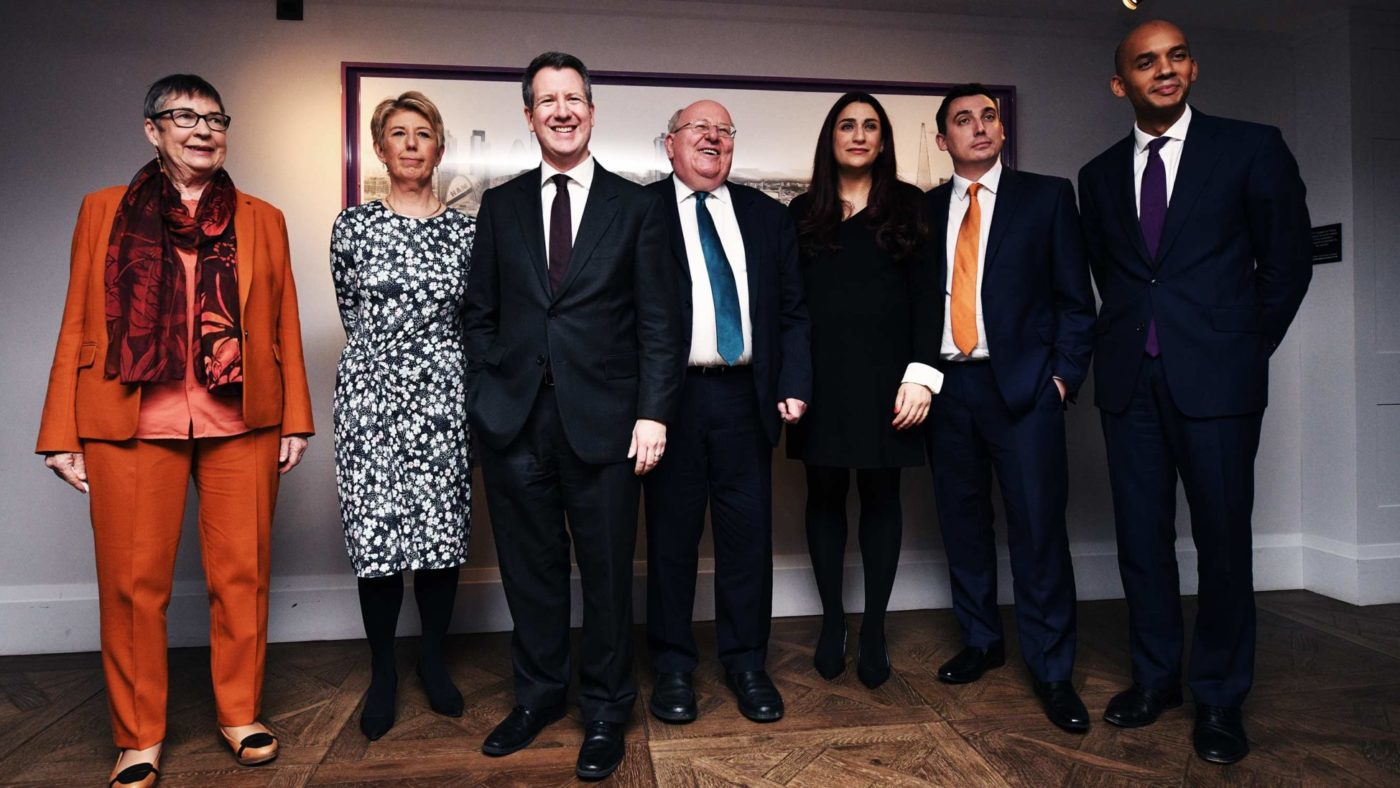So it has happened. After enduring years of scorn and abuse, seven MPs have finally acted upon the advice of their more “forthright” members and resigned from the Labour Party. For those of us who still possess a lingering emotional connection to that institution it makes for a sad and poignant day.
Indeed, that the new Independent Group is something of a bridge to nowhere should promote reflection rather than invite derision. What it reveals is that the rupture is not born of any credible hope for power but out of sheer moral revulsion towards what the Labour Party has become. Forget for a moment the seven are MPs: that a Jewish woman does not feel secure or welcome in Labour; that a working class activist, with four decades of service, feels compelled to rip up his membership card, paints a vivid picture of the convulsions Corbynism has brought to the party. Escaping is more important than knowing the final destination — and many activists feel similar.
Nevertheless, whilst this is transparently not a project with a long-term plan, it still pays to ask whether it might yet succeed where others have failed. Because though the Independent Group is not a fully-fledged party there can be little doubt that is where its members are heading. Each speech was laden with a deeply personal finality. There is no going back.
There are three basic reasons why the Gang of Seven might dream of a different fate to their forbears.
One, technology has significantly lowered the barriers of entry to setting up a new political party. Within an hour of their launch the Independent Group had amassed close to 20,000 followers on Twitter. Such rapid mobilisation was obviously not possible in the past and is a large factor in the rise of successful new parties, of every ideological hue, across Europe in the digital era.
Two, party affiliation is much more fluid these days. It may not feel like it given the hyper-partisan tone to our political discourse, but evidence from the British Electoral Study clearly shows more and more people are open to changing political allegiances — and do. This — as Scottish Labour and the Lib Dems know only too well — means the political fortunes of mainstream establishment parties can change almost overnight, granting far greater opportunities to breakthrough for wannabe insurgents.
Three, there is the simple observation that when the Labour Party has become a safe haven for virulent, West-hating racists and the Conservative Party gears up to do unspeakable Anglo-Saxon things to business, the centre-ground of British politics — both economically and culturally — is there for the taking.
This final point requires some clarification. For there is a well-evidenced argument, pushed by pollsters such as Matthew Goodwin, that the new party Britain really wants is very far from the liberal sensibilities that cleave to the centre. This is undeniable as far as the polling evidence goes, with mainstream British opinion much more culturally conservative and economically protectionist than anything one might expect frustrated liberals to serve up.
But this rather mistakes the path to political success such a party must take. For politics is not a commercial enterprise — one does not succeed by delivering consumer products to untapped markets. No, any new party of this nature would have to take the Macron route to success: aggressively contesting the morality and competence of the existing political establishment on their chosen terrain. It cannot win merely by beating the two main parties. It must attempt to supersede them.
However, to state the obvious, this will require a compelling pitch on what we might call the ‘supply-side’ of new party politics. And here the Independent Group seemed less sure-footed. Anti-Semitism, foreign policy and Brexit inaction may well make for a compelling case against Jeremy Corbyn’s leadership, but not a single one of them lies fully within the domestic policy sphere that will define this group’s long-term success.
For all the talk of a “broken politics” there was nothing in their values statement that signalled advance notice of a comprehensive reform agenda. This is an inauspicious error because though policy — least of all political reform — wins few votes directly, it is policy that provides a platform for the messages that do. “Let’s take back control” would be nothing without a perfect dovetail with the policy of leaving the EU.
The best message for any such new party is the anti-system, “plague on both houses” prosecution of a broken politics that Emmanuel Macron rode all the way to the Elysee Palace. But it can only be unlocked if there is an answer to the question “what would you do instead?” The Independent Group gave no hint today they have yet thought about what they might say.
CapX depends on the generosity of its readers. If you value what we do, please consider making a donation.


